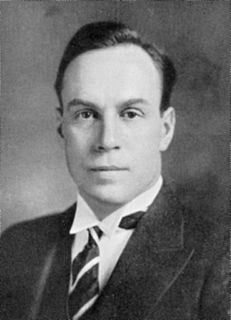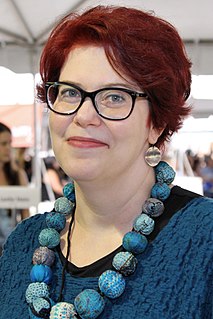A Quote by Jeanette Winterson
I have set off and found that there is no end to even the simplest journey of the mind. I begin, and straight away a hundred alternative routes present themselves. I choose one, no sooner begin, than a hundred more appear. Every time I try to narrow down my intent I expand it, and yet those straits and canals still lead me to the open sea, and then I realize how vast it all is, this matter of the mind. I am confounded by the shining water and the size of the world.
Related Quotes
The beginning of freedom is the realization that you are not “the thinker.” The moment you start watching the thinker, a higher level of consciousness becomes activated. You then begin to realize that there is a vast realm of intelligence beyond thought, that thought is only a tiny aspect of that intelligence. You also realize that all the things that truly matter – beauty, love, creativity, joy, inner peace – arise from beyond the mind. You begin to awaken.
I begin with humility, I act with humility, I end with humility. Humility leads to clarity. Humility leads to an open mind and a forgiving heart. With an open mind and a forgiving heart, I see every person as superior to me in some way; with every person as my teacher, I grow in wisdom. As I grow in wisdom, humility becomes ever more my guide. I begin with humility, I act with humility, I end with humility.
In every enterprise ... the mind is always reasoning, and, even when we seem to act without a motive, an instinctive logic still directs the mind. Only we are not aware of it, because we begin by reasoning before we know or say that we are reasoning, just as we begin by speaking before we observe that we are speaking, and just as we begin by seeing and hearing before we know what we see or what we hear.
Sometimes I'll have an end in mind, but it's always false, always corny, just a dumb idea anyone could have, sitting on a barstool. An abstract thesis with no real life inside it. And then I start writing and the writing itself confounds me, taking away the comfort of knowing the end in advance. How is that even possible? Doesn't the conclusion come at the end? How can you begin with one - that seems odd, right?
After weeks on the road, listening to a language you don’t understand, using a currency whose value you don’t comprehend, walking down streets you’ve never walked down before, you discover that your old “I,” along with everything you ever learned, is absolutely no use at all in the face of those new challenges, and you begin to realize that buried deep in your unconscious mind there is someone much more interesting and adventurous and more open to the world and to new experiences.
The right procedure: You begin at the wrong end if you first dispute about your election. Prove your conversion, and then never doubt your election. If you cannot yet prove it, set upon a present and thorough turning. Whatever purposes be, which are secret, I am sure His promises are plain. How desperately do rebels argue! "If I am elected I shall be saved, do what I will. If not, I shall be damned, do what I can." Perverse sinner, will you begin where you should end?
The back windows looked out over the fields, then the Atlantic, maybe a hundred yards away. Actually, I'm just making that bit up. I had no idea how far away the sea was. Only men could do things like that. "Half a mile." "Fifty yards." Giving directions, that sort of thing. I could look at a woman and say "Thirty-six C." Or "Let's try it in the next size up." But I had no idea how far away Tim's sea was except that I wouldn't want to walk to it in high heels.
Usually I begin things through a drawing, so a lot of things are worked out in the drawing. But even then, I still allow for and want to make changes. I kind of do the drawing with the painting in mind, but it's very hard to guess at a size or a color and the colors around it and what it will really look like. It's only a guess at the beginning, and then I try to refine it.
Something else an academic education will do for you. If you go along with it any considerable distance, it will begin to give you an idea what size mind you have. What’ll fit and, maybe, what it won’t. After a while, you’ll have an idea what kind of thoughts your mind should be wearing. For one thing, it may save you an extraordinary amount of time trying on ideas that won’t suit you, aren’t becoming to you. You’ll begin to know your true measurements and dress your mind accordingly.
The basics teachings of Buddha are about understanding what we are, who we are, why we are. When we begin to realize what we are, who we are, why we are, then we begin to realize what we are not, who we are not, why we are not. We begin to realize that we don't have basic, substantial, solid, fundamental ground that we can exert anymore. We begin to realize that our ideas of security and our concept of freedom have been purely phantom experiences.
The soil in which the meditative mind can begin is the soil of everyday life, the strife, the pain, and the fleeting joy. It must begin there, and bring order, and from there move endlessly. .. You must take a plunge into the water, not knowing how to swim. And the beauty of meditation is that you never know where you are, where you are going, what the end is.
Last year in the U.S. alone more than nine hundred thousand people were reported missing and not found... That's out of three hundred million, total population. That breaks down to about one person in three hundred and twenty-five vanishing. Every year.... Maybe it's a coincidence, but it's almost the same loss ratio experienced by herd animals on the African savannah to large predators.






































